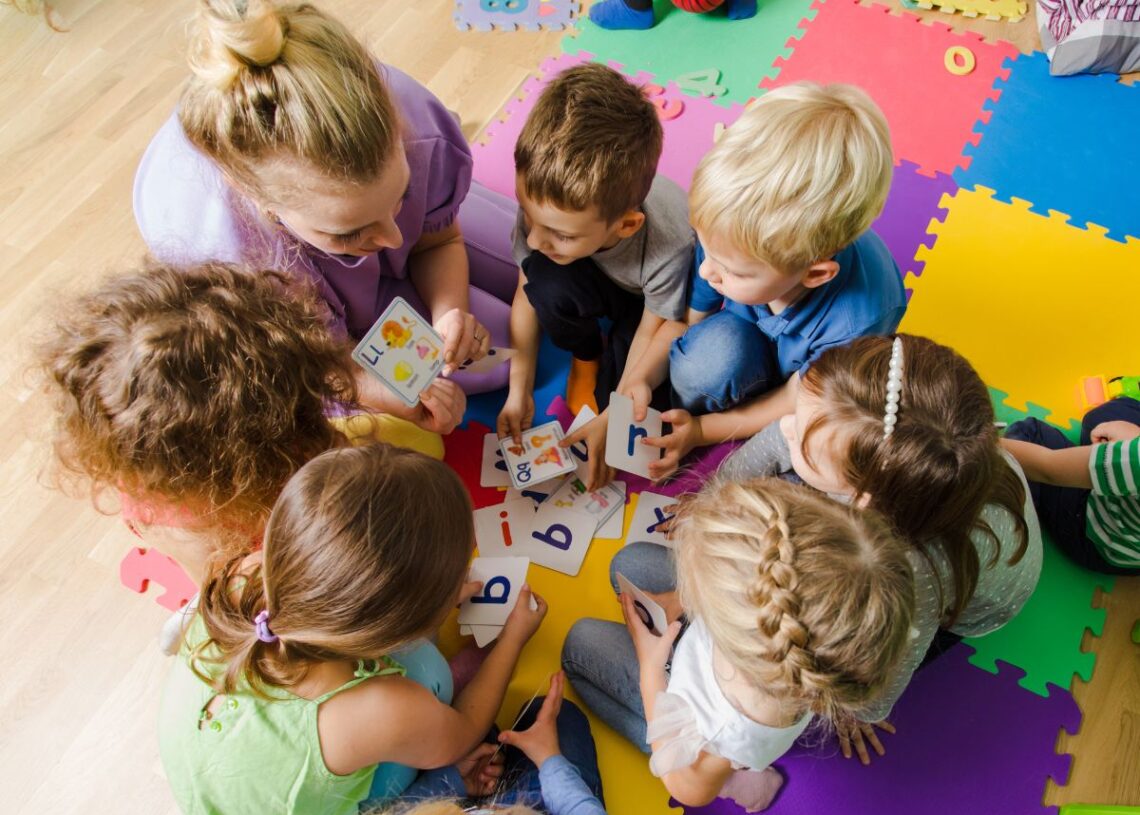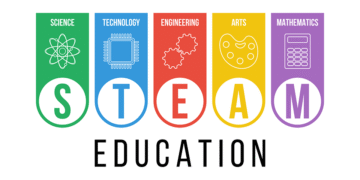The Rise of Playful Learning Environments
Gamification is gaining traction as a potent tool in early childhood education. By weaving game mechanics into the learning tapestry, educators are crafting captivating experiences that ignite young learners’ motivation and cultivate a profound grasp of fundamental subjects. This evolution towards integrating recreation into education is revolutionizing children’s attitudes toward learning. Challenge-based gamification shows especially impressive results.
Integrating playful learning with structured game mechanics can unlock young children’s potential by fostering motivation, participation, and deeper understanding across core subjects. However, successful gamification requires careful attention to teacher training and curriculum integration. Overcoming these barriers is crucial for maximizing the potential of playful learning. As technology continues to advance, gamified learning is poised to play an even greater role in shaping the future of education, creating a more engaging and effective learning environment.
The Power of Sensory Engagement
Sensory experiences are fundamental to early childhood development, influencing cognitive, emotional, and social skills. Movement and sensory-based activities are increasingly integrated into early education to enhance learning and attention spans. These practices help children develop essential skills for processing sensory information and self-regulation. Children facing sensory and motor challenges, including those on the autism spectrum, often encounter obstacles in engagement and learning. Targeted sensory integration programs can effectively reduce these barriers, fostering greater inclusion and participation in educational activities.
There’s a growing trend towards creating sensory-friendly environments in both home and educational settings. These environments are designed to support consistent developmental progress by minimizing sensory overload and promoting comfort, allowing children to focus and learn more effectively. Policymakers and educators are advocating for early and inclusive sensory interventions, recognizing that interventions are most effective when implemented early in life. Early childhood education policies play a critical role in reducing long-term inequalities and maximizing each child’s developmental potential.
Strengthening Bonds Through Interactive Play
Parent-child engagement through fun activities is increasingly recognized as a cornerstone of early childhood education, setting the stage for future academic and social success. Playful learning, where parents and children engage in activities like storytelling and games, boosts language and literacy skills. These shared experiences also nurture social-emotional growth and problem-solving abilities, preparing children for formal schooling. Many initiatives emphasize the importance of parent-child engagement in playful learning as a catalyst for early childhood development.
Interactive Approaches to Early Literacy
Early literacy is more than just knowing the alphabet; it’s about fostering a lifelong love of reading and learning. Traditional methods are making way for engaging, hands-on experiences. Classrooms are embracing project-based learning, encouraging collaboration and critical thinking from a young age. This approach moves away from rote memorization, fostering a deeper understanding of concepts. Technology is playing a key role in tailoring education to individual needs. Interactive whiteboards, tablets, and personalized learning platforms are becoming increasingly common. These tools enhance engagement and provide valuable support for educators.
Gamification strategies, such as quizzes and scavenger hunts, are making learning fun and interactive. Augmented and virtual reality offer immersive experiences, further enhancing engagement with foundational literacy concepts and making learning more memorable. A growing emphasis is placed on decoding proficiency – the ability to accurately read. Research-backed instructional materials are being prioritized to help children develop this crucial skill, laying a strong foundation for independent reading comprehension. The ultimate goal is to create learning environments that support both academic success and overall well-being. By integrating cognitive development with social-emotional growth, educators are helping children unlock their full potential and develop a lifelong love of learning.
Cultivating Social Skills and Creativity
Early childhood education is increasingly recognizing the vital role of play in developing crucial social skills and fostering creativity in toddlers. Play-based learning environments are now considered essential for young children. These settings allow toddlers to explore, experiment, and interact in ways that naturally boost their social and creative abilities. It’s about learning through doing and experiencing. Engagement in arts-related activities, like singing and creative play, strengthens the bond between parents and children. These activities also correlate with improved academic performance and positive social behaviors as children enter kindergarten, demonstrating the lasting impact of early experiences.
Playful interactions are key to developing essential soft skills. Problem-solving, cooperation, and emotional competence are all nurtured through these experiences. These skills are strong predictors of well-being throughout life, emphasizing the importance of fostering them early on. Educators are integrating imaginative experiences into curricula. Simultaneously, they’re addressing the importance of balanced technology use. Thoughtful use of digital tools can enhance learning, but too much screen time may negatively impact vocabulary growth and social development.
Q&A
Question 1: What are the key benefits of playful learning for young children’s development, as highlighted in the provided text?
Answer: Playful learning significantly impacts cognitive, social, and emotional growth. It fosters creativity, literacy skills, and crucial social interactions, laying a strong foundation for future success. Gamified learning, in particular, boosts engagement and academic performance, with challenge-based gamification showing especially impressive results (up to 89.4% improvement in educational outcomes, according to Market.us). Sensory experiences also play a crucial role, influencing cognitive, emotional, and social skills, and helping children develop self-regulation. Parent-child engagement through playful activities further enhances language, literacy, and social-emotional development.
Question 2: The text mentions challenges in implementing gamified learning. What are these challenges, and how can they be overcome?
Answer: Successful implementation of gamified learning requires addressing challenges like teacher training and curriculum integration. Educators need adequate training to effectively utilize gamification in the classroom, and the curriculum must be designed to seamlessly integrate game mechanics. Overcoming these barriers through targeted professional development and curriculum design is crucial for maximizing the potential of playful learning.
Question 3: How does the text describe the role of technology in enhancing early literacy and learning?
Answer: Technology plays a significant role in tailoring education to individual needs. Interactive whiteboards, tablets, and personalized learning platforms enhance engagement and provide valuable support for educators. Gamification strategies (quizzes, scavenger hunts) and immersive experiences (augmented and virtual reality) make learning fun and memorable. However, the text also emphasizes the importance of balanced technology use, acknowledging potential negative impacts of excessive screen time on vocabulary and social development.
Question 4: What is the importance of parent-child engagement in playful learning, and what initiatives support this approach?
Answer: Parent-child engagement through playful activities like storytelling and games boosts language and literacy skills, nurtures social-emotional growth, and prepares children for formal schooling. Initiatives like those tracked by Trying Together in Pittsburgh demonstrate significant family participation in early literacy events (over 2,182 families in Fiscal Year 2024). These programs highlight the growing value placed on parent-child engagement and the efforts to scale access and measure positive outcomes.
References:
- https://education.ec.europa.eu/education-levels/early-childhood-education-and-care
- https://www.unicef.org/education/early-childhood-education
- https://www.apu.apus.edu/area-of-study/education/resources/why-is-early-childhood-education-important-for-children/







